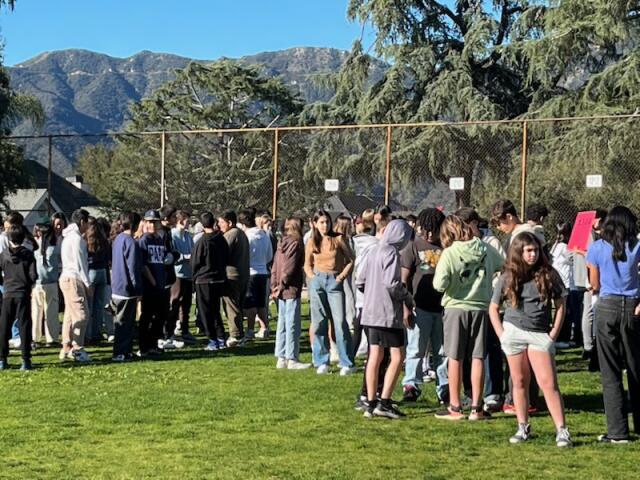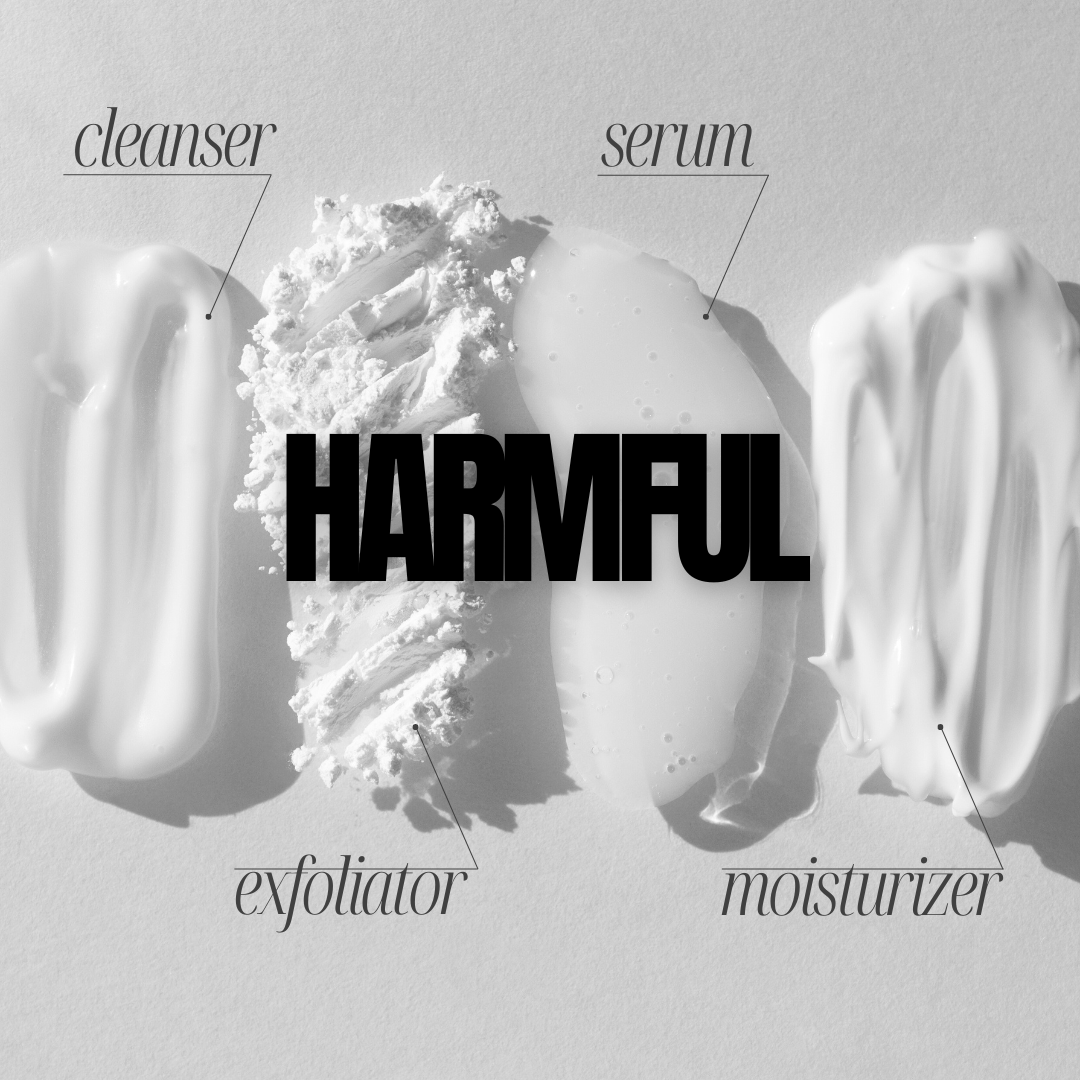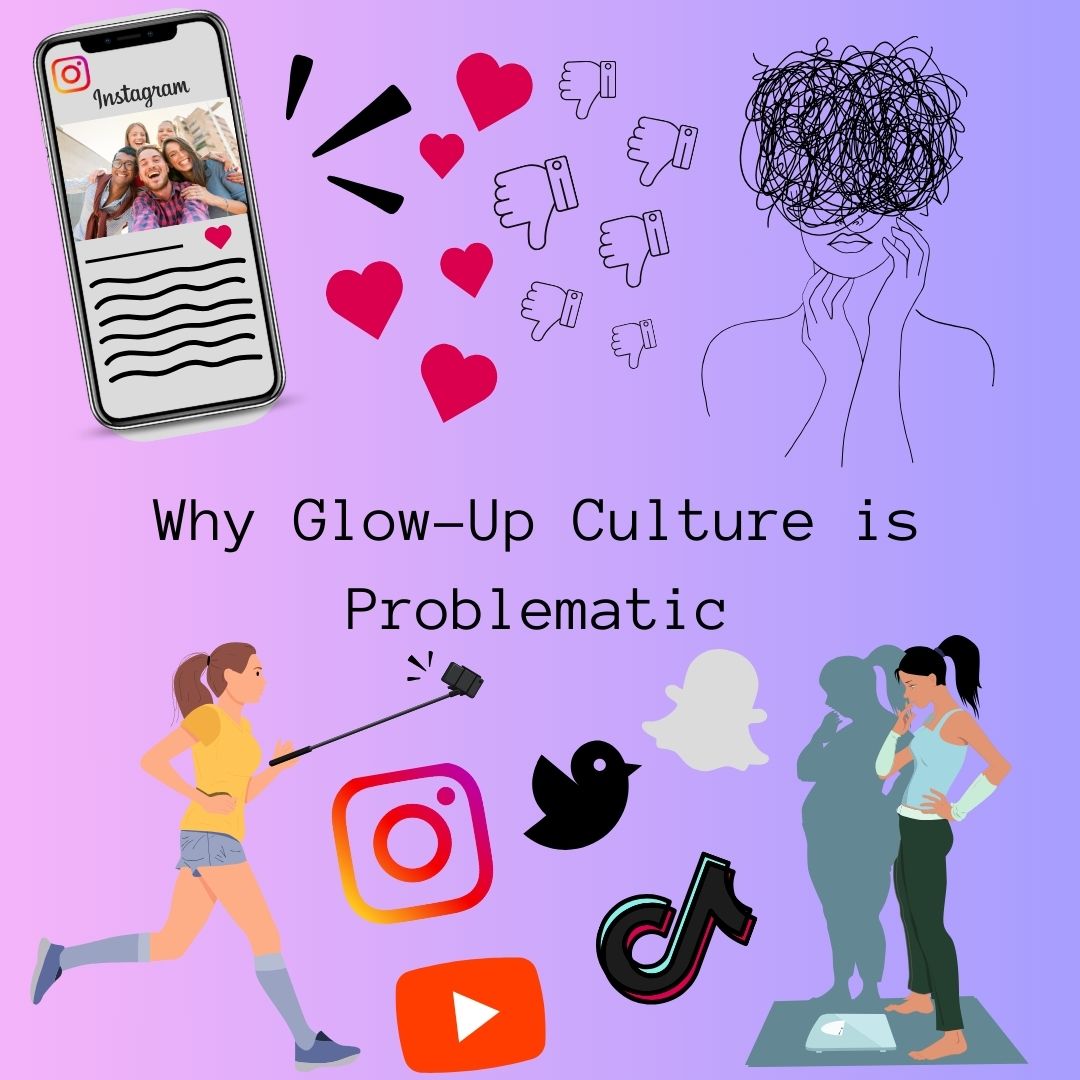“We were playing ‘grown-ups,’ but these kids are actually becoming them.”
You walk outside and see a fourth grader with a full face of makeup and clothes that seem appropriate for a 17-year-old. You see a sixth grader posting photos, edited to look “flawless.” A young girl boasts about trying out a new diet to have a “nicer body” for her elementary friends. Our question is, what is really behind this seemingly “harmless” new wave of influencers, and what will become of this “influenced” generation?
Over the past couple of years with the growing popularity of Tiktok, the concept of self-improvement and reinvention has become warped. Viral videos featuring this idea of becoming “perfect” have oversaturated the media, causing impacts on groups outside of the intended audience. One example of this is advertising bashing their younger self and then saying that they had a glow-up when they just grew up.
It is not only on TikTok or Instagram, glow-ups have been shown in the media for a long time. The most recognizable being, The Princess Diaries, Clueless, or when Adele “got hot”. What do all of these have in common? They only showcase the physical attributes of glowing up. After meeting mainstream standards of beauty, the girl gets the guy or becomes praised and encouraged for their drastic changes. Even if those changes were forced or artificial.
We spoke to Rosemont students to ask about their views on the topic, and honestly, the responses were across the board. When asked about how influencers and beauty standards affect him personally, one eighth-grade boy tells us, “Social media does not affect how I feel about myself because I do not agree with the ideologies it pushes.”
On the other hand, one seventh-grade girl tells us her views on this issue.
“There is a lot of negativity online that impacts a lot of people’s thoughts about themselves…Parental guidance is way too loose and parents should be aware of how their child can be affected by what they see online. It’s very easy to have unhealthy habits go unnoticed because it is so normalized.” When talking about developing “unhealthy habits” we are highlighting things such as eating disorders, which have had a spike in the youth starting in the year 2020. MentalHealthAmericaNational.org states, “Now pro-eating disorder content, dangerous diet culture trends, and unrealistic body image expectations can be found all over the internet on YouTube, Instagram, TikTok, Discord, and Snapchat.”
We’ve also seen larger forces promoting the “forced aging” of young children. One student noticed, “ More adult things are being targeted at children, like makeup and clothing.” Have you noticed an incline in smaller, more revealing clothing being sold to young girls? We agree that it is difficult for girls to even find a tank top that fits the dress code rule of no thin straps. It is almost impossible to shop for things like dresses that do not have an open back or inappropriately low neckline for an eleven to fourteen-year-old. “It is normal now to not dress modest,” one girl tells us.
Now that we see the dangerous side of this “online pandemic,” let’s talk about the positive side.
An eighth-grade girl expresses, “Always been really confident so it’s something I’ve aspired to be, but not in a negative way. I saw what other people were doing and inspired me to better myself.” Some think that trends like this one can be taken and used in a positive light, such as motivating them to embrace their differences and using trends to learn ways to improve their health or wellness in a manner that isn’t harmful.
People will always want to fit in and be accepted. There is nothing anybody can do about what humans want/need to improve. However, we can change the way the media is presenting the idea of bettering yourself. Next time you think about posting to a new glow-up trend, think about the authentic progress you have made over time. Did you find peace within your body? Did you find help and improve your mental health? Did you cut off a toxic friendship? Or mend one? We need to remind ourselves that it’s not just famous people or influencers causing the problem, it can be anyone. It’s our job to protect the mental health of our community. Let’s all try to prioritize self-love over superficial recognition.
















